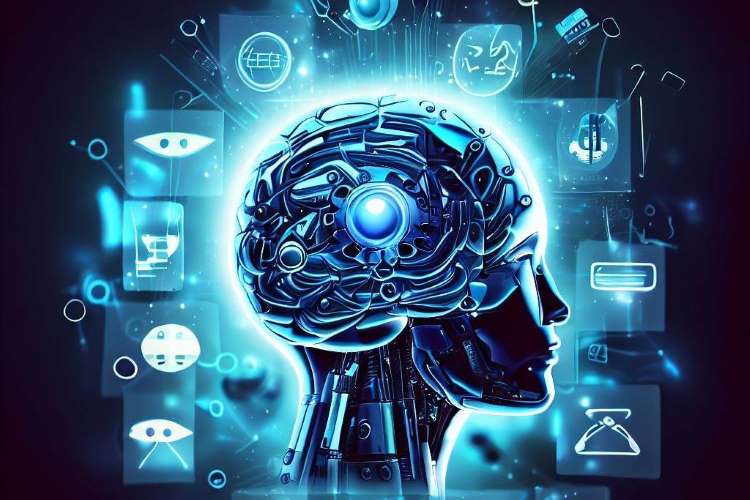The use of artificial intelligence (AI) is a prominent topic in today’s modern world. ChatGPT, a subset of the Fourth Industrial Revolution, is a component of AI. The significance of innovation is escalating each day, with generative AI, like ChatGPT, exemplifying cutting-edge technology. In this innovative era, AI significantly influences sectors like health, education, agriculture, infrastructure, and industry. As defined by Investopedia, AI refers to software-coded heuristics that emulate human intelligence, allowing machines to perform tasks like recognising patterns and understanding language—capabilities previously unique to humans.
Historically, tools have been integral to human civilization, from inventions like the wheel to modern technologies like automation, machine learning, and AI. Now, robots are taking over tasks humans once did; virtual assistants like Alexa and Siri, which utilise machine language, are prime examples. ChatGPT’s recent advancements have made it versatile, with capabilities ranging from graphic design to music creation, editing, legal document writing, and even scriptwriting.
READ I Rising crude oil prices give sleepless nights to policymakers
ChatGPT to revolutionise job scene
Although AI’s origins trace back to the 1950s, its significant developments have occurred mainly in the past five to seven years. Industries spanning tech, education, finance, healthcare, media, construction, and tourism have adopted AI. While human intelligence allows us to adapt to new situations, AI focuses on simulating human tasks. The evolution of AI has transitioned from expert systems to analytics, machine learning, and now, full-blown artificial intelligence.
OpenAI’s release of ChatGPT 3.5 in November 2022 only heightened AI’s popularity. This large language model software can handle tasks like animation, book composition, email automation, and even virtual assistance. Impressively, while platforms like Netflix, Facebook, and Instagram took years to garner significant followers, AI achieved a million followers in just five days, according to The Indian Express. Furthermore, ChatGPT 3.5 provides human-like answers free of charge.
Historical trends suggest that technological advancements often lead to job losses. For instance, smartphones replaced landlines, vehicles replaced horses, and online platforms rendered many manual jobs obsolete. As AI often outperforms human counterparts, its implications on job markets, education, health, infrastructure, and politics are profound. With AI handling various tasks efficiently, a pressing question emerges: Does the 4IR replace old jobs with new ones, or is the future unpredictable? Research reveals mixed opinions.
While Goldman Sachs predicts AI could threaten 300 million jobs, Davenport and Ronanki (2018) argue that complete job eradication due to AI is exaggerated. Emphasising the importance of resilience and adaptability, Charles Darwin’s theory of evolution suggests that humans must continually adapt, especially as AI advances. Although AI is becoming smarter, humans should control it, as it lacks empathy and operates based on commands.
According to the World Economic Forum, while 85 million jobs might be lost to AI, it will concurrently create 95 million new positions across sectors. Thus, AI complements rather than replaces human intelligence. Notable figures, like the co-founder of Infosys, N R Narayana Murthy, and Milind Lakkad of Tata Consultancy Services, believe AI augments human capabilities instead of substituting them. AI’s introduction will lead to certain job losses, but the focus should be on adapting. Those proficient in AI will have an edge in the job market, while those unfamiliar with it might face challenges. AI doesn’t eliminate jobs; it shifts job categories.
Jim Rohn astutely noted, “Focus on the solution, not the problem.” Progress-oriented nations prioritise solutions over problems. For instance, China’s investments in innovation and technology, combined with its emphasis on education and socioeconomic growth, have propelled it to become the world’s second-largest economy with unmatched prowess in AI. While AI might threaten some jobs, it’s crucial to search for solutions. Nations should prioritise education, technological advancements, and AI awareness programs to prepare for the future. If the global focus remains on solutions, it’s accurate to say that Generative AI applications such as ChatGPT, reshapes job categories rather than eradicating jobs entirely.
(Kiran Nath is a Research Scholar at the Department of Economics, Pondicherry University.)

